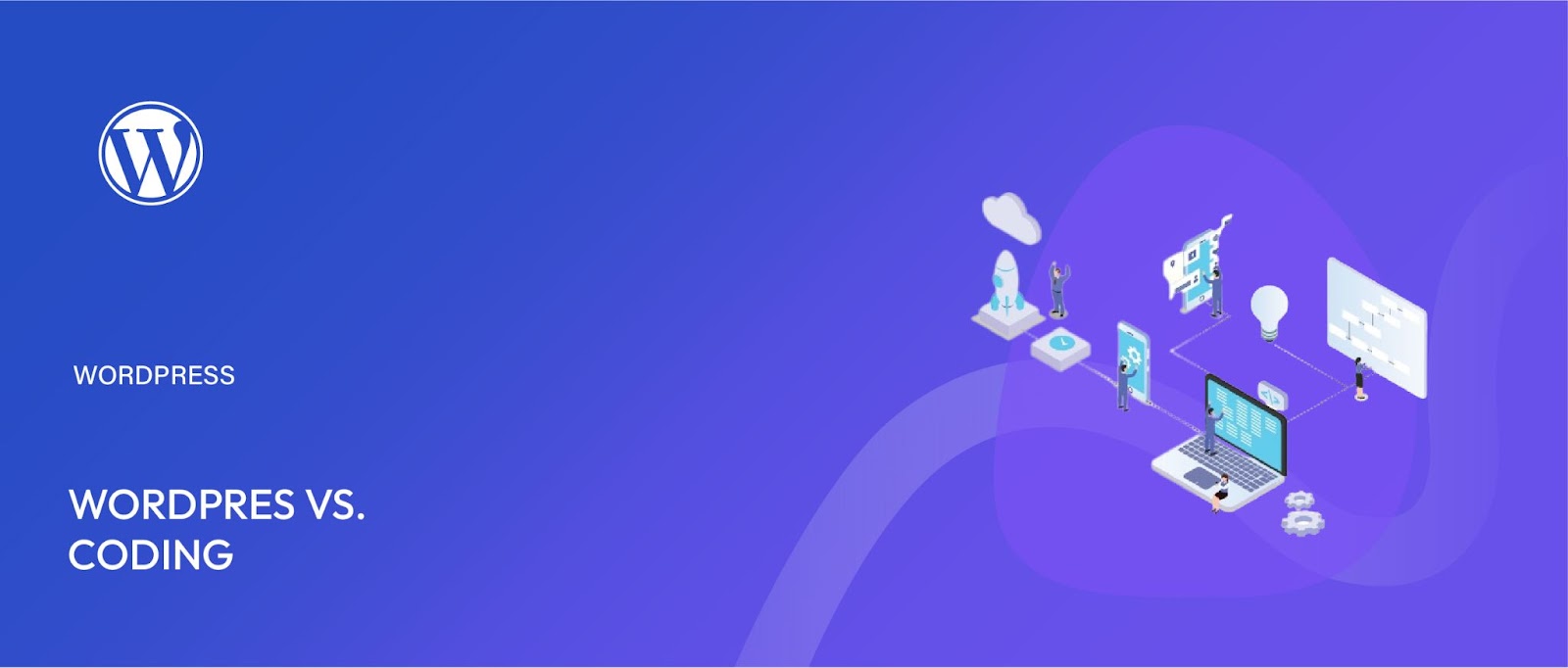The choice between WordPress and coding depends on your needs and comfort level. WordPress is great for beginners and those who want a user-friendly experience with a plethora of plugins and themes. Coding gives you more control and customization but requires technical know-how. Superiority is subjective; it’s about what suits you best.
Let’s study the advantages and disadvantages of each strategy:
WordPress:
Advantages:
- User-Friendly: WordPress is known for its user-friendly interface, making it accessible to individuals with limited coding knowledge.
- Plugins and Themes: There’s a vast ecosystem of plugins and themes that can enhance the functionality and appearance of your site without extensive coding.
- Community Support: WordPress has a large and active community, which means plenty of tutorials, forums, and third-party support.
Disadvantages:
- Customization Limitations: While you can customize WordPress to a great extent, there might be limitations to achieving highly unique designs or functionalities without delving into custom coding.
- Performance: Some heavily customized WordPress sites may experience performance issues, especially if they rely on numerous plugins
Coding from Scratch:
Advantages:
- Complete Control: Coding from scratch provides complete control over every aspect of your website. You can create a truly unique and optimized solution.
- Performance: Hand-coding allows for optimized performance, as you can tailor every aspect of your site to meet specific performance requirements.
- Scalability: Custom-coded websites can be more scalable and easily adapted to handle increased traffic or evolving functionality.
Disadvantages:
- Learning Curve: Coding requires a certain level of expertise. If you’re not familiar with programming languages (HTML, CSS, JavaScript, etc.), there is a steep learning curve.
- Time-consuming: Building a website from scratch can be time-consuming, especially for complex features. This may not be ideal if you need a website quickly.
- Maintenance: Maintenance and updates are entirely your responsibility, which can be a significant task depending on the complexity of your site.
The following are some things to think about when choosing:
Coding a Website from Scratch:
- Total Customization: You can have total control over the appearance and operation of your website if you code from scratch. You can design a distinctive, custom website that is ideal for realizing your goals.
- Performance: It is possible to optimize a custom-coded website for performance, which is crucial for quick loading times and a positive user experience.
- Learning Curve: If you’re not familiar with programming, it may take some time to pick it up before you can code a website. It could be more challenging for starters.
- Updating and maintaining your system is your responsibility and may take more time and energy.
- Cost: While content management system (CMS) and website builder subscriptions are free, you may have to pay for hosting, domain registration, and possibly hiring a developer.
Using WordPress or Website Builders:
- Ease of Use: Those without coding experience can create and manage a website more easily with WordPress and website builders because of their user-friendly design.
- Templates and Plugins: You can use pre-designed templates and plugins to quickly add features and functionality to your site without coding.
- Community Support: You can readily locate resources and assistance on these platforms due to their sizable user communities.
- Maintenance: The platform or hosting provider often handles security and updates, which lessens your maintenance burden.
- Cost: Although the platforms may be inexpensive or free, you will probably have to pay for hosting, domain registration, and premium themes and plugins.
Which is Superior?
There is no one-size-fits-all answer. Depending on your unique requirements and abilities. If you need a website quickly, have limited coding knowledge, and want a platform with a large community and plugin ecosystem, WordPress might be the better choice. However, if you require a highly customized and optimized solution, and have the time and expertise, coding from scratch may be the superior option.
In some cases, a middle ground is also possible. You can use a framework or CMS that allows for more customization than WordPress but doesn’t require starting entirely from scratch. Examples include Laravel or Django for web development.

